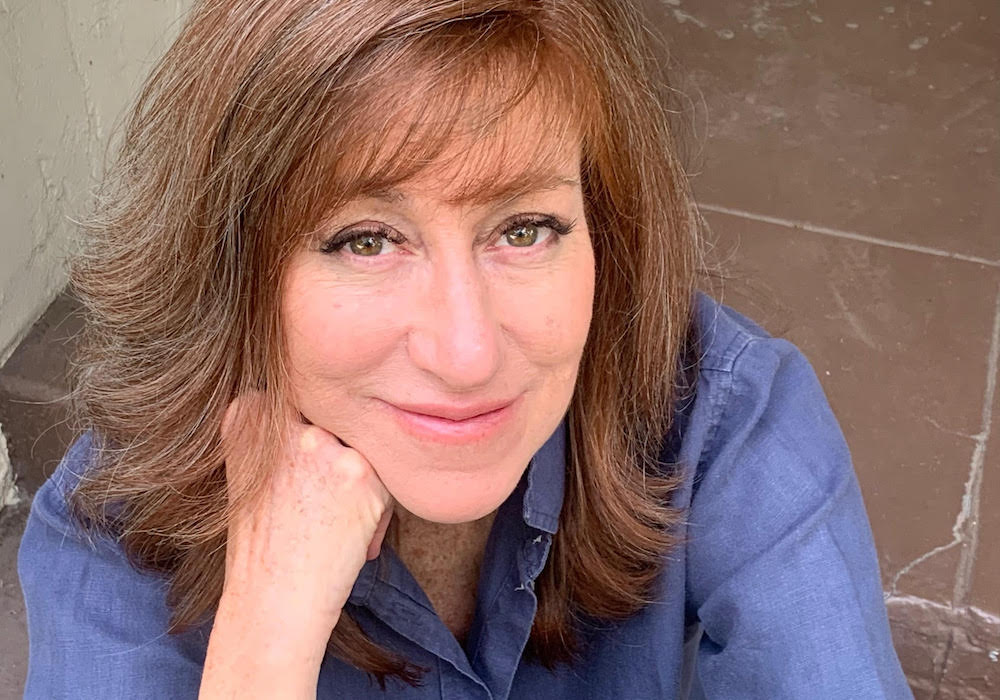
Diana Marcum is a narrative writer for the Los Angeles Times, where she won a Pulitzer Prize for her coverage of the Central Valley and the Sierra, and author of The Tenth Island, a memoir about her time in the Azorean Islands. Before moderating the Zócalo/California Wellness Foundation event, “What Makes a Good Small Town?,” she spoke about bringing journalism to the stage, wonder and wander, and getting hooked on the Mrs. Pollifax books.
If you could get a TV show greenlit, what would the story be?
I’d pick one of my books, I’m no fool! It’s funny, people always expect you to say something serious, right? Like, I’m going to, you know, write the definitive accounts of drought in California. But I would love to write a caper.
Do you have a favorite word of the moment?
I am kind of fascinated by wonder and wander. Right before the pandemic, I was in Belize living on a butterfly farm, reporting a book. So I spent a lot of time just in this little office where I’m talking [now], writing that book during the pandemic. I was reliving all the wonders I’d seen—the natural wonders like butterflies, but also just the wonder of connecting with people and meeting new people and having them turned into friends, and just how close all of that is related to the ability to get out there and wander. Not to go somewhere directly, but to take your time and see where things take you.
Speaking of your new book, The Fallen Stones, what was something you learned reporting it?
To watch the lifecycle [of a butterfly], you have to be able to wait 20 minutes until a butterfly starts to emerge from its chrysalis. It’s really fascinating once it starts, but the hard part is to be willing to stand there and wait. So that that was something I learned. I’m not someone who, by nature, sits quietly and silently and just watches.
You and photographer Michael Robinson Chavez have had a long journalism partnership. What’s the value of working on a story with someone else?
It’s invaluable. First of all, it’s a lot more fun. But second, it’s not just about what ends up on the paper or what ends up on the screen. It’s having these two different personalities that can go into an area and make people comfortable. If you’ve got that teamwork, when you go in together and can say, “Oh, what did you think?,” “What do you see?,” you’ve already started that creative bouncing at the very beginning, when you’re trying to shape your idea of what you’re seeing.
During your Nieman Foundation journalism fellowship at Harvard you worked on combining life theater with journalism. Can you tell us about that?
We’re all talking about how to grow audiences. But we usually reach out to people who are already plugged in—who are already reading newspapers and magazines. I get frustrated when I’m going to small towns or places where people are struggling, and I’m not writing about their lives for them—I’m writing about it for the consumption of others. I want to introduce people to each other. As a writer, that’s my main thing. And that’s become a real one-way conversation as the middle has fallen out of our society—as there’s just no common well. I think it’s a real puzzle. But the one small idea that I have is to go back to the very beginning roots of storytelling. I want to go into small towns, and I want to talk to people about their stories. And then I want to put on a show. I want to make it an event. I want people to come and watch stories live and get engaged face to face and just start building relationships that might lead to curiosity, and might lead to readers, and might lead to people wanting to know more stories.
What’s the last book that you couldn’t put down?
I’m always looking for a book that’s fun but not stupid. I look at major newspapers’ lists of the upcoming books you need to read this summer. There are a lot of words like “an evocative thriller that will bring home the depravity of human nature,” and that’s not what I need to put me back together at the end of the day. So I am always looking for those books that just kind of hit the sweet spot of not being mind-numbing but are fun and life-affirming.
Any you’ve read lately like that?
I’ve been just doing stupid lately. I got hooked on the Mrs. Pollifax books [by Dorothy Gilman]. She’s a spy in the Cold War times, and she’s a widow, and she’s so bored that she might die, and she starts to think how life can be more interesting, so she tootles on down to the CIA and offers her services. She’s forever karate-chopping Soviet agents and things. They are so silly, but I kind of love them. And now I’m reading some P. G. Wodehouse because he never fails.



